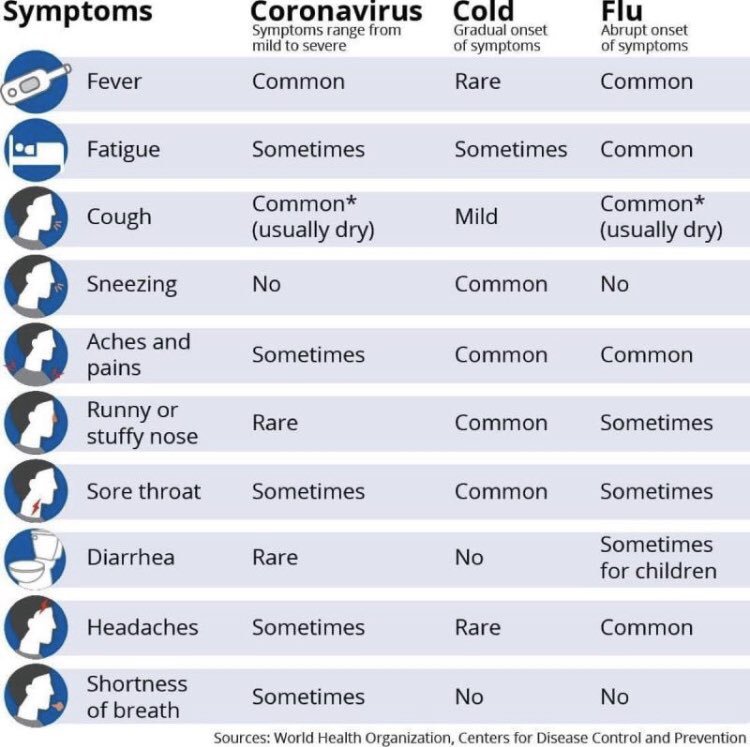Wellbeing Wednesday: Cold, flu or coronavirus?

Winter in the UK always sees a rise in colds and flu.
This winter it is more important than ever to stay safe and well with coronaivrus cases on the rise.
But how do you know if what you have is a cold, flu or coronavirus?
The infographic above is a summary of the main symptoms for cold, flu and coronavirus.
You can find more information below from the NHS on symptoms of cold, flu and coronavirus, with links to NHS advice if you think you have one of these illnesses.
Cold
Cold symptoms come on gradually and can include:
- a blocked or runny nose
- a sore throat
- headaches
- muscle aches
- coughs
- sneezing
- a raised temperature
- pressure in your ears and face
- loss of taste and smell
The symptoms are the same in adults and children. Sometimes symptoms last longer in children.
For more information from the NHS on what you should do if you think you have a cold visit https://www.nhs.uk/conditions/common-cold/
Flu
Flu symptoms come on very quickly and can include:
- a sudden fever – a temperature of 38 degress celsius or above
- an aching body
- feeling tired or exhausted
- a dry cough
- a sore throat
- a headache
- difficulty sleeping
- loss of appetite
- diarrhoea or tummy pain
- feeling sick and being sick
The symptoms are similar for children, but they can also get pain in their ear and appear less active.
For more information from the NHS on what you should do if you think you have flu visit https://www.nhs.uk/conditions/flu/
Coronavirus
The main symptoms of coronavirus are:
- a high temperature – this means you feel hot to touch on your chest or back (you do not need to measure your temperature)
- a new, continuous cough – this means coughing a lot for more than an hour, or three or more coughing episodes in 24 hours (if you usually have a cough, it may be worse than usual)
- a loss or change to your sense of smell or taste – this means you've noticed you cannot smell or taste anything, or things smell or taste different to normal
Most people with coronavirus have at least one of these symptoms.
If you think you may have coronavirus, stay home, self-isolate and call 111, do not attempt to see your GP or attend a GP surgery or hospital.
For more information from the NHS on what you should do if you think you have coronavirus visit https://www.nhs.uk/conditions/coronavirus-covid-19/symptoms/

Unipart's Employee Assistance Provider called LifeWorks, has a wide range of resources that can help to support you, and up to five members of your family.
If you are struggling, you can get free, confidential support from independent caring counsellors 24/7, via the phone number on 0800 169 1920 or through unipart.lifeworks.com or the LifeWorks mobile app.
If you don't already have a login, find out more about how to sign up here.





0 comments have been posted.